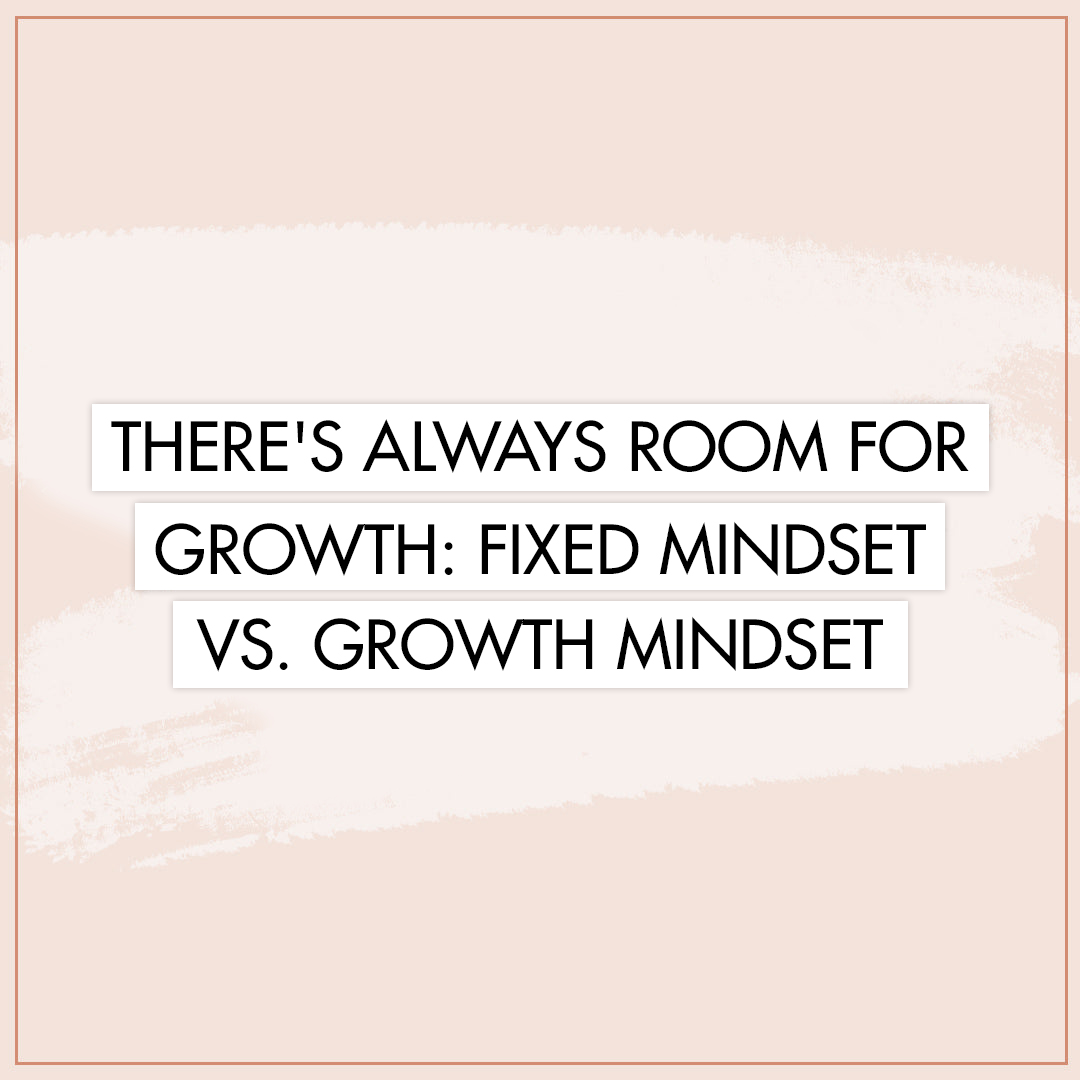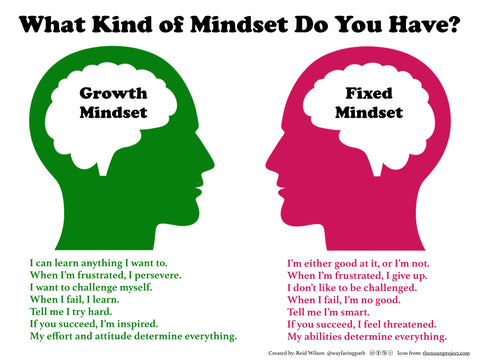Do you agree or disagree with the following statements?
“You have a fixed level of ability that cannot be changed.”
“While you can learn new things, you cannot improve your basic level of ability.”
If you agree with the above, you may be fostering what’s called fixed mindset.
Fixed Mindset
Individuals with fixed mindset believe that there’s no changing baseline skills and talents. Whatever level of ability you’re born with is what you’re stuck with for the rest of your life.
Don’t work too hard. Make sure you look the part. If you have to exert effort, that must means that you’re not talented to begin with and that’s a sign of weakness. Avoid challenges as much as possible. If you face a failure, run and hide – make excuses, place blame on others, become the victim.
These are the thought processes of a fixed mindset.
As long as you’re not challenged, you can accomplish what you want with ease. No one has any constructive feedback for you, and you’re constantly put up on a pedestal – this is when you’re happiest. Inherent talent is everything. It’s when someone dares to point out a flaw that all hell breaks loose.
Think about someone you might know – a colleague, a friend, a family member – who always seems to poo-poo on your parade. She insists on going out of her way to complain about this and that disposition, but when you offer advice or suggest methods for improvement, she’s quick to point out why that’s not possible. This is the kind of individual who might throw a tantrum when receiving a less than desirable grade on an algebra test and declare that she’s simply not cut out for math. When receiving constructive feedback, she’ll view it as an attack on her character and become irrationally defensive rather than seeing it as an opportunity for growth. She’s allergic to hard work.
In the fixed mindset, failure takes on a whole new meaning. Instead of failure being something you do, it becomes who you are. It’s not that you failed at a particular task; it’s that you are a failure. The internalization of failure can be crippling and have lifelong impacts.
Here are some more examples of fixed mindset rearing its ugly head:
When your friend gets a promotion at work, instead of being happy for her, you’re enraged. You feel that her success takes away from your own accomplishments and makes you less than.
When you get your first B- on a paper and you glance at all the red scribbles your professor has made across the pages, you take this as proof that you were never meant to be a writer anyway and you withdraw from the class.
When you perform poorly on a midterm, you spend even less time studying for the next one and even resort to cheating just so you can get a better grade.
When you lose in a game of chess, you come up with a hundred and one excuses as to why you didn’t win: you didn’t sleep enough the night before; you had a headache that prevented you from fully concentrating; you were nauseous from having just eaten; there was a noise in the room that was distracting you.
In the story above, Sophie is harboring a fixed mindset toward her fat loss journey. At the first sign of a setback, she throws in the towel. It never occurs to her that perhaps some troubleshooting of her fitness regimen would reveal some massive areas for improvement.
Growth Mindset
Those with growth mindset exhibit markedly differently thought processes and behaviors as compared to that of individuals with fixed mindset. They believe that basic abilities can be fostered and developed through perseverance and dedication. Inherent talent is simply the baseline, and full potential can only be realized through continued learning and practice.
Learn as much as you can. Dedicated practice is key. Actively work to improve upon your deficiencies and mistakes. A failure isn’t a dead-end; it’s a learning opportunity for improvement.
Do you see the stark contrast between the two mindsets?
Growth mindset individuals understand that it’s a combination of smarts plus effort that leads to success. In other words, it’s not that either you’re smart oryou have to work hard; you can absolutely have both qualities – and in fact, this is highly valued.
Here are some growth mindset scenarios:
- You try out for your high school volleyball team but you don’t make the varsity squad like you’d hoped. Rather than throwing a tantrum, you talk to the coach about what skills you need to work on, and you spend an extra hour every evening honing your craft for the next several months so you might make the team next year.
- You’ve always enjoyed math, and you’ve gotten good grades in algebra and geometry with relative ease. But now that you’ve hit pre-calculus, concepts are a little more abstract and a little more confusing than before. You recruit the help of a math tutor to help you understand the lessons so you can continue to learn.
- For several years straight, you’ve always been the highest performing salesperson in your company. One day, a new hire comes in and threatens to snag the top spot away from you. This inspires you more than ever to polish your craft. In fact, you’re almost grateful that he’s entered the picture because now he’s forcing you to stay on top of your game rather than get complacent.
- At your first bodybuilding show, you don’t place as well as you’d hoped during prejudging. You still stay around through finals, however, all with a smile on your face and a pep in your step. When the show is over, you talk to the judges to receive their feedback, and then you decide to dedicate the next three years to building up your lagging body parts before you begin another contest prep again.
A growth mindset isn’t afraid to try. In fact, if you harbor growth mindset, you enthusiastically welcome a challenge and you’re motivated by setbacks.
If Sophie had had a growth mindset, she would have analyzed her fitness program objectively (or perhaps hired a knowledgeable coach) and realized that, while her food choices were high quality, she was simply consuming too many overall calories to create any kind of energy deficit. As well, reducing the endless hours of cardio and instead prioritizing strength training would yield the positive body composition changes she was going for. She could have corrected her erroneous ways and been well on her way to success if only she had believed that there was still room for growth.
The best success stories we come across are those of triumph, relentless effort, and indomitable will. Michael Jordan, Tiger Woods, Dara Torres – these are all high-level athletes who beat the odds and went out of their way to become the world’s best at what they do. They woke up earlier, stayed at practice longer, and did what others were not willing to do.
When faced with a challenge, do you shy away, or do you rise to the occasion?





